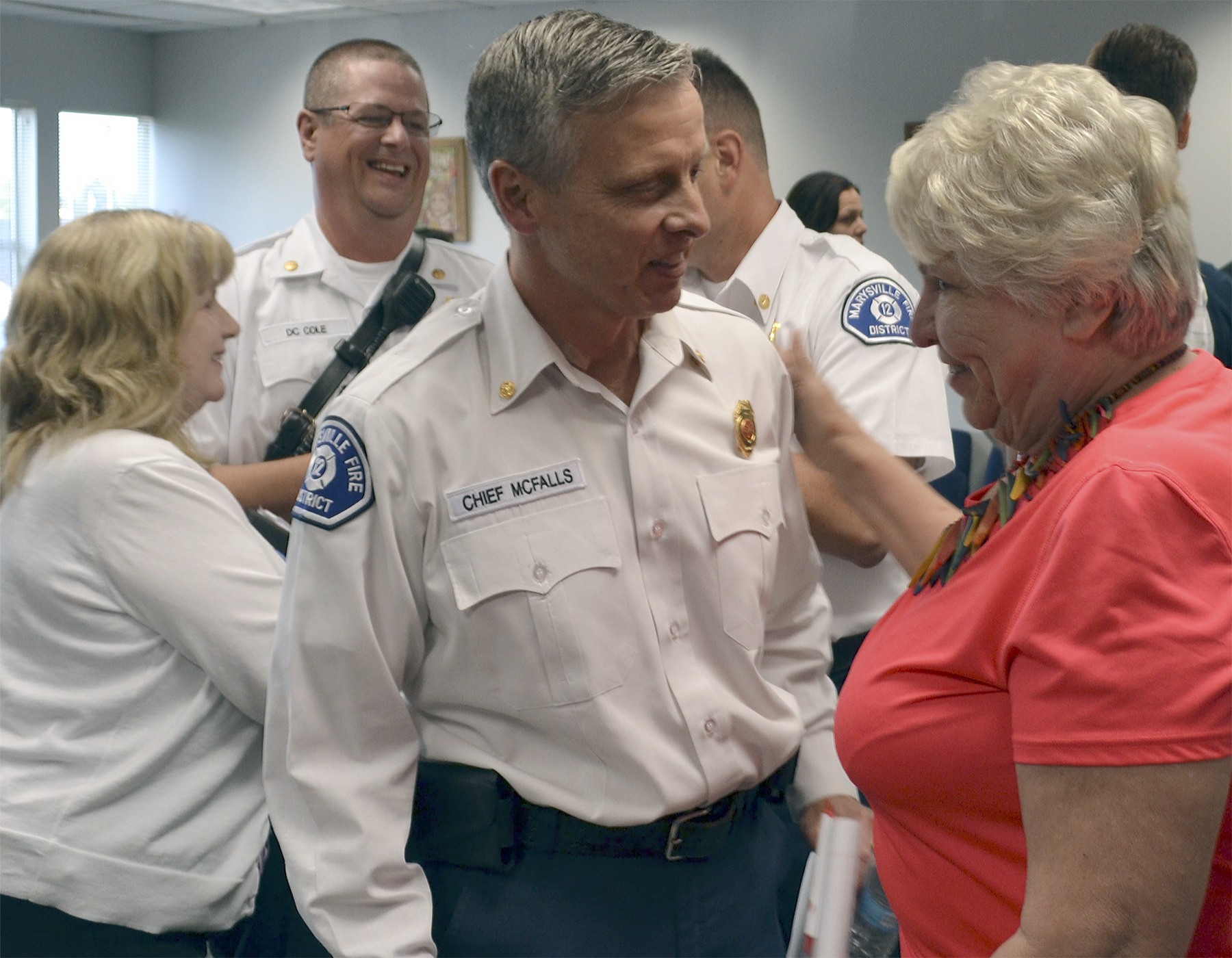MARYSVILLE – Dean Shelton walked out of City Hall, raised his arms in victory, and shouted out to his fellow firefighters, “Thank you. Nice job.”
Shelton, secretary-treasurer of the local firefighters union, was celebrating that the City Council voted Wednesday night to form a Regional Fire Authority.
He and others picketed at City Hall and spoke out at a recent council meeting, objecting to the idea of a city-run fire department.
The council had said all along it was leaning toward an RFA, but it wanted city staff to figure out all of the options.
“This is a big deal for us,” said Council Member Stephen Muller, who took the lead on the issue. “This will change the future of the community – hopefully for the better.”
Despite the vote, not everything is set in stone. The ball is back in Fire District 12’s court on if it wants to be part of the RFA. It has a deadline of mid-September to decide.
The city also is just starting to look into having the city of Arlington be part of the RFA. That’s city’s mayor, Barbara Tolbert, and city administrator, Paul Ellis, were the only ones to speak during the open comment portion of the meeting Aug. 3.
“We are working on how to maintain our level of service and how to ensure that we can sustain fire and EMS,” Ellis said.
Tolbert said the two cities used to share some services up until about a dozen years ago. She said with the explosion of growth in the Smokey Point area it might be good to look at returning to that model again.
“We hope you will join us in the conversation,” she said.
City staff said there could be cost savings if Arlington was part of the RFA.
Chief Administrative Officer Gloria Hirashima said: “There are more opportunities for cooperation. But there’s a lot to research.”
“I like the efficiencies of an RFA,” Muller added. “It takes the guesswork out of what I have to pay” for fire services.
Because the city has to wait again on a decision by District 12 fire commissioners, Councilman Jeff Siebert wondered if the council should plan what to do in the interim if the district decides not to join. Conditions of the RFA would require the city to have fair representation based on the number of people served, the amount of money contributed and the valuation of property. That has been a sticking point in the past with the district representatives.
Siebert mentioned that a city-run fire department might be a good idea in the interim. It was by far the cheapest of the options.
But Muller said he did not want to go there.
“We can cross that bridge” if it happens he said, adding he has “good faith” in Fire District 12 that it would extend services past the deadline at the end of the year, even if it decides against joining the RFA.
Councilman Michael Stevens added, “My preference is to avoid a city department as a stepping stone.”
The vote was met with resounding applause from the packed council chamber audience.
Why the change
Hirashima and a city handout explained why the change is needed.
The Marysville Fire District was formed 24 years ago with the city and Fire District 12 in the Lake Goodwin area. It served about 13,000 people in 5.4 square miles. Now, the city has 79,310 people in 21 square miles.
This year, the department is spending $2.9 million more than it is bringing in. It is taking money from its reserve to fill the gap, but that funding will eventually run out. It needs to find a more-reliable funding source for the future.
Governance also has been an issue. Even though the city provides 80 percent of the funds and people, the governing board has three fire commissioners and three council members.
At a retreat in Bremerton early this month, the council looked at four plans that would stabilize funding, give firefighters a raise and add an average of 1.5 firefighters a year.
The council did not favor a city-run department because that could jeopardize other city projects, Hirashima said. While any of the models could work, she said the RFA would be best for long-range funding.
Many revenue options are available with the RFA, including property tax increases, bonds, levy lid lifts, EMS levies and contracts. Some of those options would provide voter approval.



